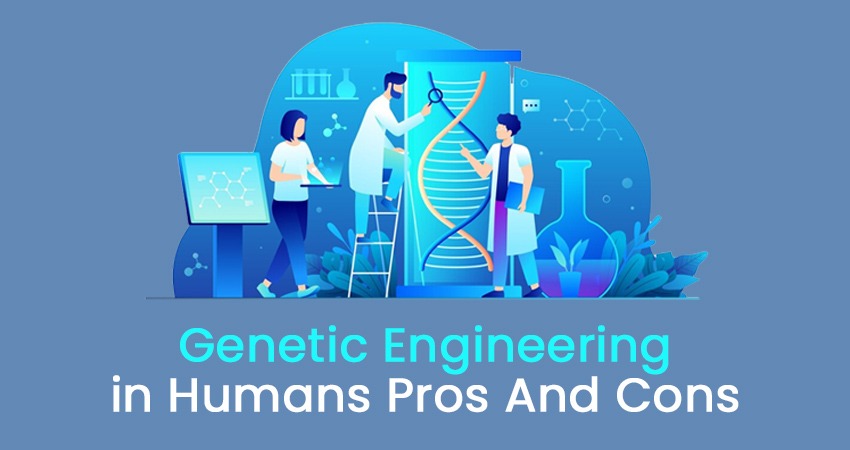User Ideas / Prospects

Medicine and human health have been revolutionized by genetic engineering. It is Full of excitement and possibilities, yet it brings concerns about ethics and safety. We need to think carefully before we take up this technology.
At Engineer's Heaven, we explore scientific advancements and their impact on society. This blog breaks down the pros and cons ofgenetic engineering in humans.
What is Genetic Engineering?
Genetic engineering is the alteration of DNA in health or to prevent disease. With techniques such as CRISPR, scientists edit genes with pinpoint accuracy to edit and move them from one location in the genome to another. These changes can be handed down to future generations, making it a powerful, though controversial tool. Let's discuss genetic engineering pros and cons.
Pros of Genetic Engineering
- Eliminating Genetic Diseases
Many inherited diseases —such as cystic fibrosis and sickle cell anaemia — have no cure. Genetic engineering can eliminate these diseases before birth. As a result, future generations will never suffer from them.
- Longer and Healthier Life
Scientists can slow ageing and prevent age-related diseases by altering genes. This technology has the potential to improve life expectancies and overall human well-being. Used wisely, it can give people disease-free, longer lives
- Stronger Immunity Against Viruses
Using CRISPR, scientists have been able to program human DNA so that it resists infections ranging from HIV to cancer. Research shows that genetic change can make a body more resistant to illness. If this pans out, there might one day be fewer deadly diseases worldwide.
- Enhancing Physical and Mental Abilities
Genetic engineering can enhance intelligence, memory and strength. It may help people faring school better and be stronger in athletic competitions. Yet all this invites questions of fairness and ethics.
- Organ Regeneration and Transplants
Healthy organ donors are in short supply to those in need. Genetic engineering can help doctors grow healthy organs from a patient's cells. In this way transplant rejections could be minimized and many lives would be saved.
Cons of Genetic Engineering
- Ethical Concerns and Inequality
The resulting ethical questions are profound when man's genetic makeup is altered. Some people worry that genetic engineering will create a split between modified individuals and people who are alive yet don't possess designer genes themselves. If only the rich could afford enhancements, social inequality would only widen.
- Unpredictable Genetic Mutations
Genetic changes could cause unexpected disease effects in people. Because DNA is complex, if one gene is altered, it might affect many others. Also, we still don't know the long-term effects of such modifications.
- Loss of Genetic Diversity
Every person's DNA is unique. If genetic engineering were common, we might lose biodiversity as we have known it since earth life began. This would make humans more vulnerable to new diseases and environmental fluctuations than they are today.
- Risk of "Designer Babies"
Parents may want to select their child's height, intelligence, or looks. This leads to the concern that people treat children as products rather than individuals, and it also puts parents under pressure to produce perfect children.
- High Costs and Accessibility Issues
Gene editing treatments are expensive. If only the rich can afford them, a new type of social inequality may arise. Governments and medical institutions must ensure people have fair access to this technology.
Should Genetic Engineering Be Regulated?
Balancing innovation with ethics is crucial. Although genetic engineering offers life-saving solutions, it should be used prudently. Governments, scientists, and society have to work together to set up strict guidelines for its use and prevent abuses of power by anybody. If well-regulated, it can benefit humanity without bringing harm.
Conclusion
Genetic engineering has the potential to transform human life. It can wipe out disease, promote health, and extend life. But it also has its dangers: social inequality, mutations brought on by genetic engineering, andethical questions. This technology must be carefully researched and regulated to avoid disaster.
At Engineer's Heaven, we think ahead today about the future of science and technology. If you are curious about the latest innovations, visit our website. Stay informed, stay one step ahead!
(Disclaimer: This statistics could be different in different part of World and Different timeline. this statistics has been generated based on data available till 2025 or relavant time span.)
